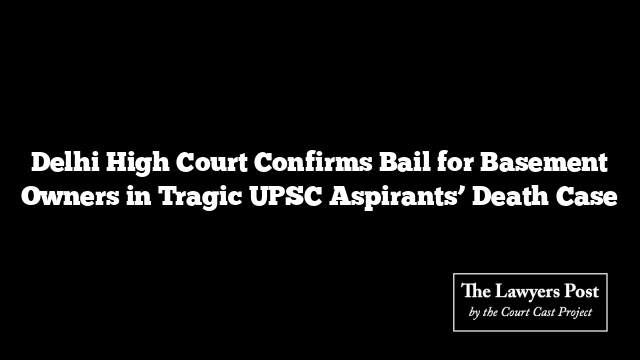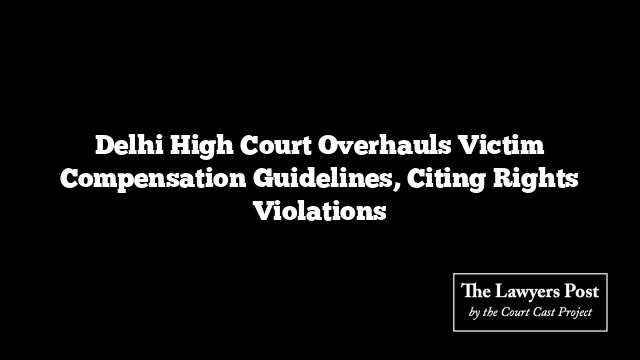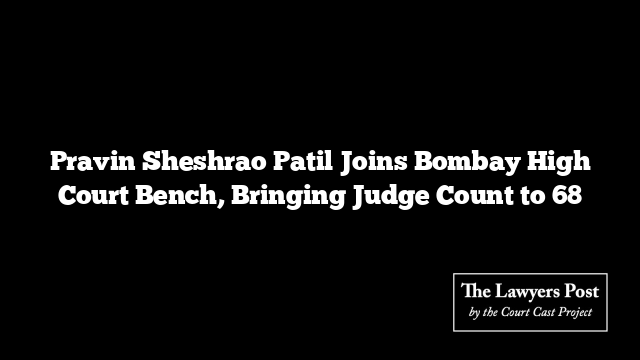In a significant development, the Delhi High Court granted regular bail to four individuals charged with criminal negligence after three UPSC aspirants lost their lives in a flooded basement-turned-library during last year’s monsoon.
The accused, Parvinder Singh, Sarabjit Singh, Tajinder Singh Ajmani, and Harvinder Singh, were co-owners of the basement housing the Rau’s IAS Study Circle in Rajinder Nagar. Initially released on interim bail, their regular bail was confirmed after the court noted the completion of the investigation and the filing of a chargesheet.
Justice Sanjeev Narula, who presided over the case, observed that no evidence of corruption involving the accused had been presented. As part of the bail conditions, the court instructed the owners to deposit ₹5 lakhs with the Delhi State Legal Services Authority (DSLSA) to support the families of the deceased. The DSLSA will oversee the distribution of this amount to eligible claimants after a detailed review.
The tragic incident occurred on July 25, 2024, when heavy rains inundated the basement, claiming the lives of three young civil service aspirants: Tania Soni (25), Shreya Yadav (25), and Navin Delvin (28). The CBI investigation revealed that the basement, meant solely for storage, had been improperly repurposed for educational activities, exposing students to significant risks.
Interim bail was initially granted to the basement owners in September 2024, with extensions provided over subsequent months. The January 21 court order solidified their release under identical terms, formally converting interim bail to regular bail.
This case also shed light on systemic oversight, with the court directing the CBI to investigate potential lapses by public authorities in regulating the use of such premises. As a gesture of accountability, the owners voluntarily offered the financial contribution toward the families, aligning with broader directives encouraging restitution in such cases.
The sorrowful loss of these aspirants remains a somber reminder of the dangers posed by negligence in urban planning and enforcement. The legal proceedings, meanwhile, continue to unfold with the aim of ensuring accountability and justice for the bereaved families.





